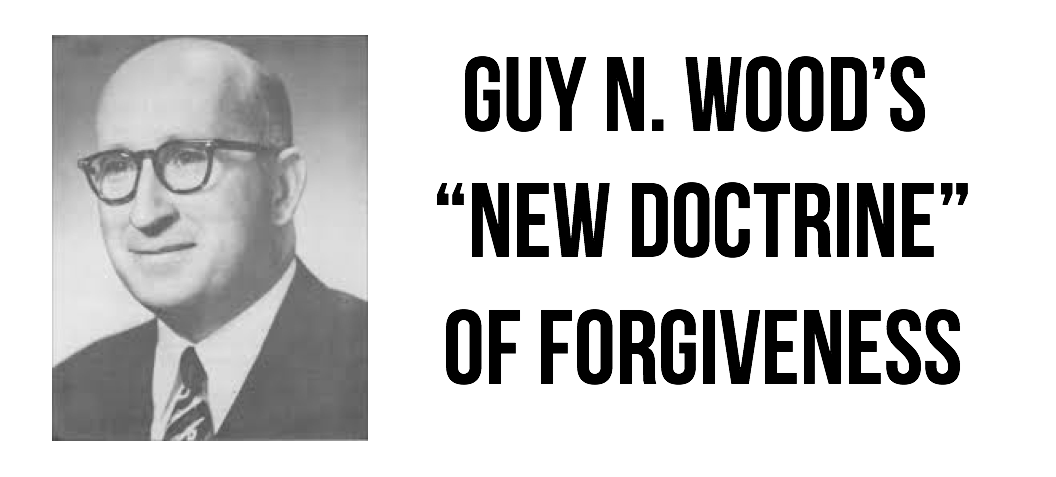Is it our duty to forgive those who sin against us when they neither ask for nor want forgiveness?
It is not only not our duty so to do, it is an utter impossibility! This question recurs because people persist in disregarding what the Bible teaches regarding genuine repentance, by setting up their own concept of what repentance is and by attempting to conform thereto. Those who do this actually imply, whether they intend it or not, that forgiveness is the cancellation of bitter, revengeful, and uncharitable feelings toward those who sin against us, substituting a disposition of kindness, love and regard for the offending one or ones; and, they urge that such must evermore characterize faithful Christians. But, (1) many devoted and dedicated disciples of the Lord never experience bitter, revengeful and uncharitable feelings toward those who sin against them; and (2) the attitude or disposition by so many regarded as obligatory in such cases is not repentance, anyway. God never entertains “bitter, revengeful and uncharitable” feelings toward even the vilest of sinners; but, he forgives only those who repent. Jesus prayed for those who hated him so much they sought for, and obtained his death; but, he did not forgive them until they repented.
The words, “remission,” and “forgiveness,” often translate the same Greek word (aphesis) and the meaning is release, the sending of sins away, and thus the restoration of a peaceful relationship which the offense interrupted. Unless the offender wants this relationship, it is impossible for the offended to effect it, however much he might desire it and seek it. Our Lord makes clear our obligation in such cases when he said, “Take heed to yourselves; if thy brother sin, rebuke him; and if he repent, forgive him. And if he sin against thee seven times in the day, and seven times turn again to thee, saying, I repent, thou shalt forgive him.” (Luke 17:3,4.) To this the reply is often made, “Well, we must always be ready and willing to forgive,” as indeed we must; but, this is not forgiveness and ought not to be confused with it. It is our duty to love all men, even our enemies, and to pray for their well being; but, we can forgive them only when they repent.
2 Thessalonians 1:5-10
This is evidence of the righteous judgment of God, that you may be considered worthy of the kingdom of God, for which you are also suffering— since indeed God considers it just to repay with affliction those who afflict you, and to grant relief to you who are afflicted as well as to us, when the Lord Jesus is revealed from heaven with his mighty angels in flaming fire, inflicting vengeance on those who do not know God and on those who do not obey the gospel of our Lord Jesus. They will suffer the punishment of eternal destruction, away from the presence of the Lord and from the glory of his might, when he comes on that day to be glorified in his saints, and to be marveled at among all who have believed, because our testimony to you was believed.
Hebrews 10:30
For we know him who said, “Vengeance is mine; I will repay.” And again, “The Lord will judge his people.”


 RSS Feed
RSS Feed
